Publications and insights
Back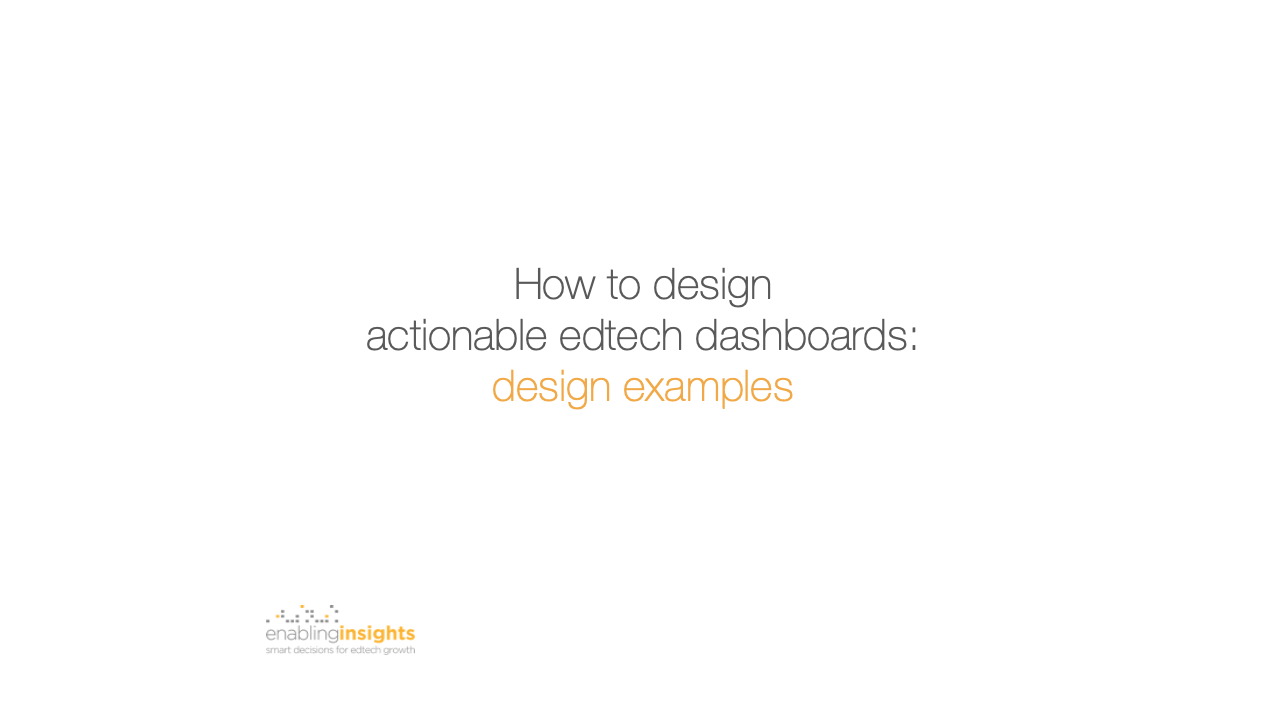
How to design edtech dashboards: part 2—design examples
Here's a short deck illustrating how to design more actionable edtech dashboards for educators applying the eleven principles I've previously published (combining practices from data visualization, education research, and cognitive science) to a fictional higher-education courseware product
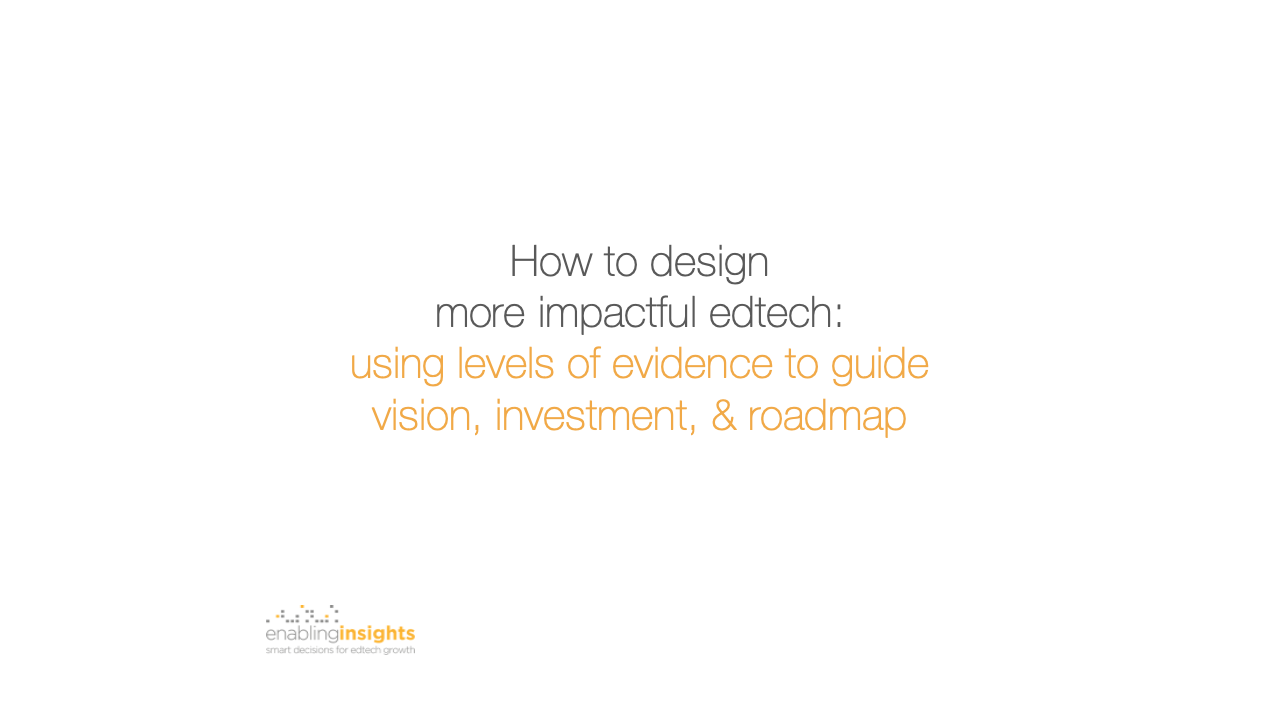
How to design impactful edtech: evidence levels to guide why, when, and how to invest in efficacy research
Investing in efficacy research can sound like an indulgence for an edtech startup that’s moving quickly and staying lean. But from experience taking many major edtech products to market, I’ve found that smart investments in efficacy research will help you to design edtech that’s more impactful and more competitive—and faster. Here’s a short deck showing how to use levels of evidence to frame your competitive ambition, investment case, and roadmap.
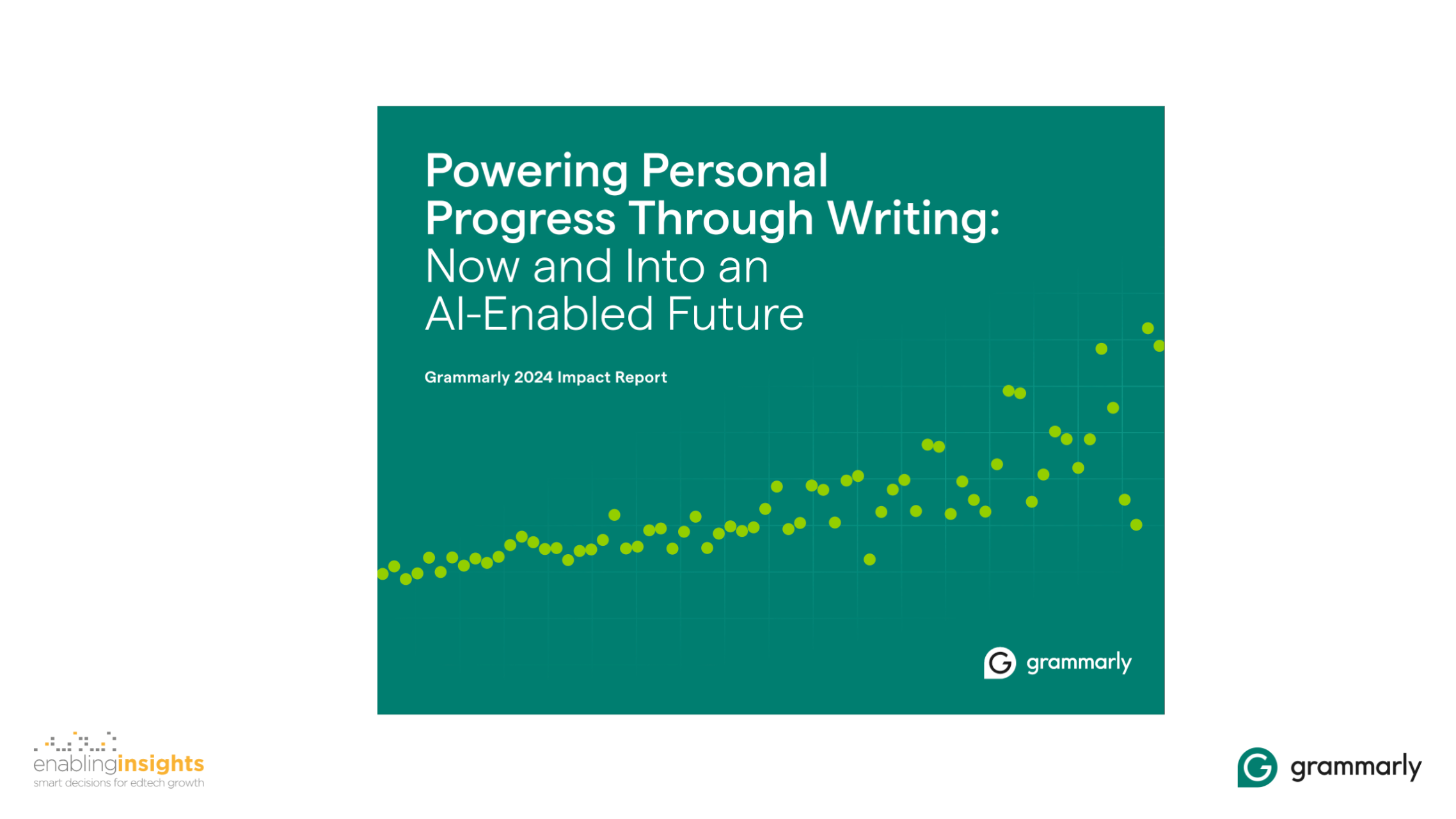
Designing a compelling Impact Strategy: example—Grammarly’s 2024 Impact Report
In a market flooded with product options and inflated claims, edtech companies need to find ways to build trust with their target customers. My recommendation is this: if you want to grow to be an edtech market leader, measure and report your impact as a cornerstone of building your brand. It was hugely rewarding to be invited by Grammarly to help them define their Impact Strategy and to construct their first public Impact Report. Click on the link below to download the full report.
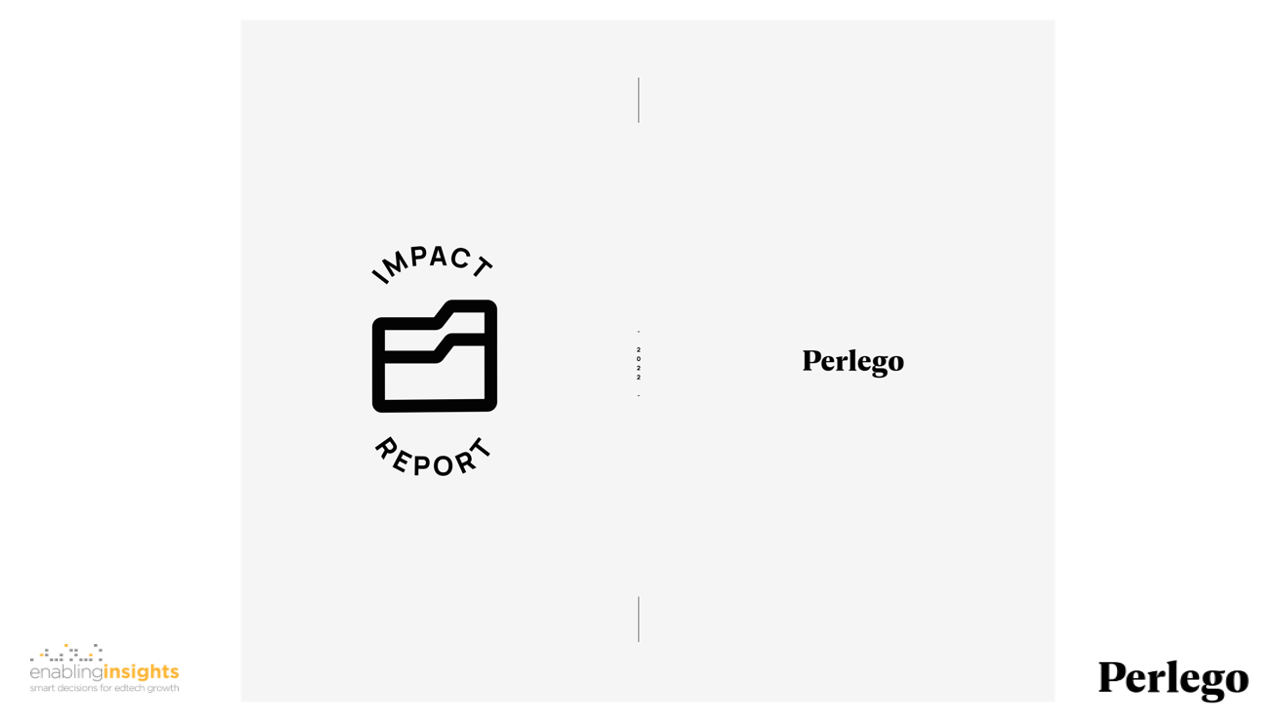
How to design a persuasive Impact Mission: example—Perlego’s 2022 Impact Report
An Impact Report helps build trust with customers by sharing your ambitions to do good. But too often the Impact Mission of an edtech business is independent from their Strategy. Annual Impact Reporting is then an exercise in whitewashing. By contrast, a learner-centered Impact Mission attracts great talent. And if your Impact Mission is your Business Strategy, it can propel teams to achieve outsized results. It’s a privilege to help Perlego design their Mission and Reporting.
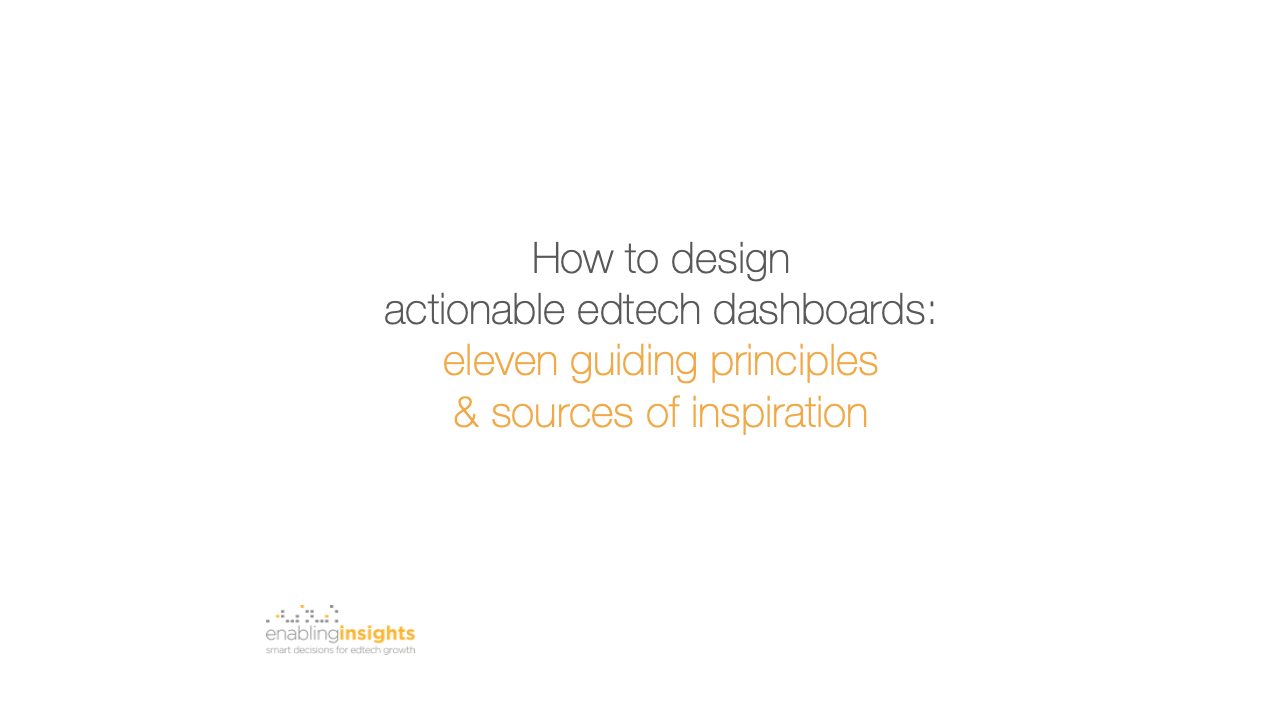
How to design edtech dashboards: part 1—eleven principles
Edtech can deliver powerful insights to teachers and learners. But, as data gets richer, edtech designers have to work harder to make it understandable and actionable. Here's a short deck of design principles I've developed over two decades (combining practices from data visualization, education research, and cognitive science) and recommended reading.
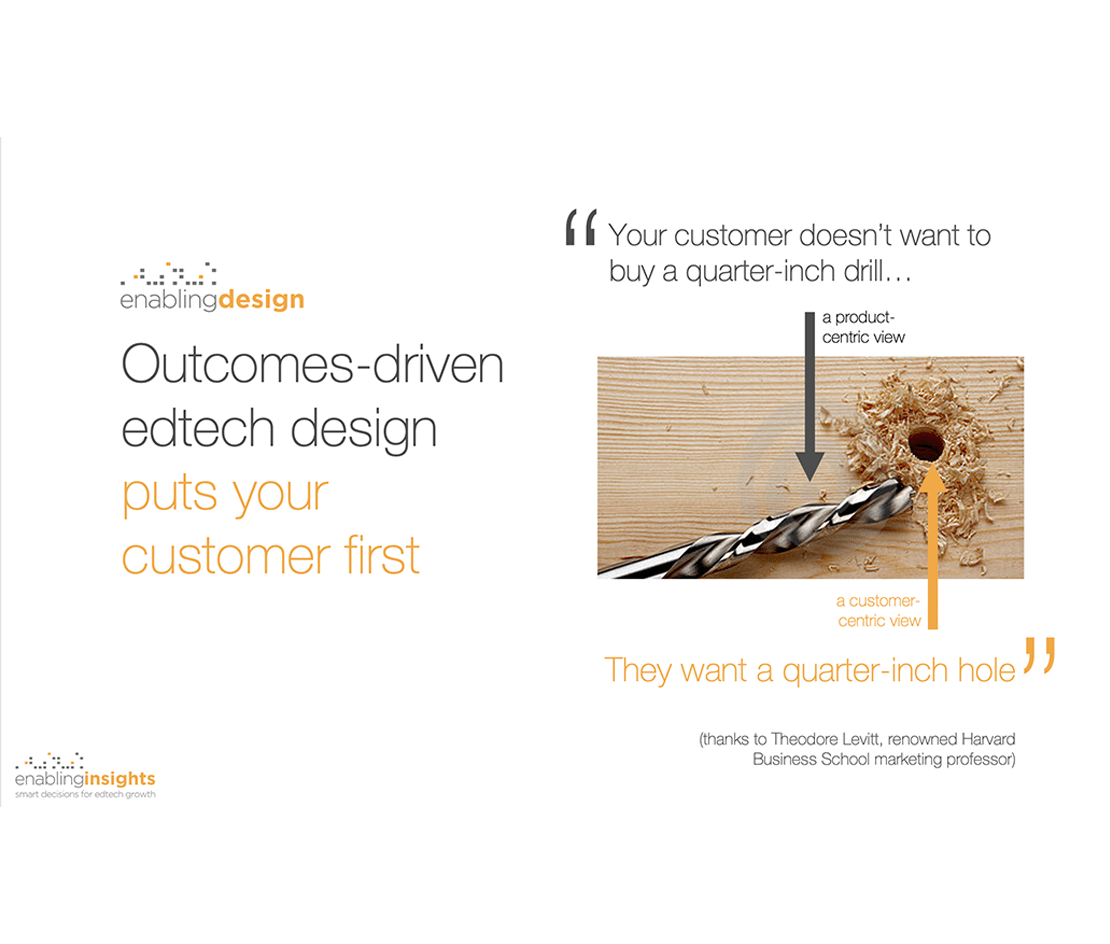
Outcomes-driven design
Outcomes-driven design puts your customer first. It keeps you and your teams focused on what your customers are trying to achieve. It enables you to engineer edtech to deliver greater value. It’s a paradigm changer. Here’s a powerful visual analogy.
